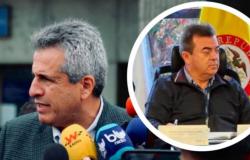There is a basket of darkness that Amazonian indigenous groups such as the Bora, Muinane, Murui or Uitoto have decided to close in order to live and imagine a new world based on hope. In that basket are kept the atrocities committed by the extractive companies of cinchona and rubber that caused, at the end of the 19th century, some 60,000 victims, subjugated, enslaved and murdered by human beings assigned to the famous Casa Arana, a Peruvian company that operated with British capital, and Brazilian and Colombian associates, whose center of operations was concentrated in La Chorrera…
Subscribe to continue reading
Read without limits
There is a basket of darkness that Amazonian indigenous groups such as the Bora, Muinane, Murui or Uitoto have decided to close in order to live and imagine a new world based on hope. In that basket are kept the atrocities committed by the extractive companies of cinchona and rubber that caused, at the end of the 19th century, some 60,000 victims, subjugated, enslaved and murdered by human beings assigned to the famous Casa Arana, a Peruvian company that operated with British capital, and Brazilian and Colombian associates, whose center of operations was concentrated in La Chorrera (Amazonas), on the banks of the Igara Paraná River.
What can be lost when horror has been known and pain has been able to devastate entire towns? La Chorrera was the epicenter of one of the worst tragedies we have ever known as a country. For 50 years, through the perverse economy of debt and the enslavement of these towns for the extraction of latex, an infrastructure was built in which disgrace and death reigned. People like the Okaina practically disappeared. When these events began to be reported -Roger Casement, José Eustasio Rivera-, the country did not react. When, in 1924, 100 years ago, it was published The Maelstromthe statement became popular according to which what happened in the jungles of Caquetá, Putumayo, Amazonas and Vichada were “things of The Maelstrom”, including the corruption and bribery of notable Creole lawyers who were defended by prominent political men of the time.
In 1988, the Government of Virgilio Barco handed over some six million hectares to the indigenous peoples, creating the largest reservation in the country: the Putumayo property. It is a gesture of greatness that we must recognize today. During these 36 years various governments have passed through La Chorrera. A century after the publication of Rivera’s novel, the Ministry of Culture wanted to make a gesture of recognition and listening to the communities on April 23, attending an event by the Zonal Indigenous Association of Councils and Traditional Authorities of La Chorrera (Azicatch) to commemorate the delivery of the property.
La Chorrera continues to live in oblivion like many of the Colombian territories that are outside of what Orlando Fals Borda called the golden triangle. If the country that disagrees with what this Government proposes does not realize that it is with that country that we must work and grow, violence will continue to spread like wildfire. Those “things” The Maelstrom They will continue to be thought of as fiction. And the plausible social abyss between the center of the country and everything that surrounds it will continue to be ignored by the itch of a country that must seriously ask itself what Rivera denounced 100 years ago: are we prepared to assume our responsibility and understand that the Patronage and corruption are cultures entrenched in society? Will we be able to open the basket of life and one day close the basket of darkness?
Rivera’s novel is very important for this country as a literary artifact because of the linguistic ruptures it represents. But also because, despite everything, it has not been forgotten 100 years later. And perhaps in this resignification that we intend to give it today it will find new meanings, not only through reading, but of a country that we want to recognize in the midst of the tensions produced by the old hatreds entrenched in part of the society that still does not recognize that other country.
Newsletter
The analysis of current events and the best stories from Colombia, every week in your mailbox
RECEIVE THE
Subscribe here to the EL PAÍS newsletter about Colombia and here to the channel on WhatsAppand receive all the information keys on current events in the country.
#Colombia






